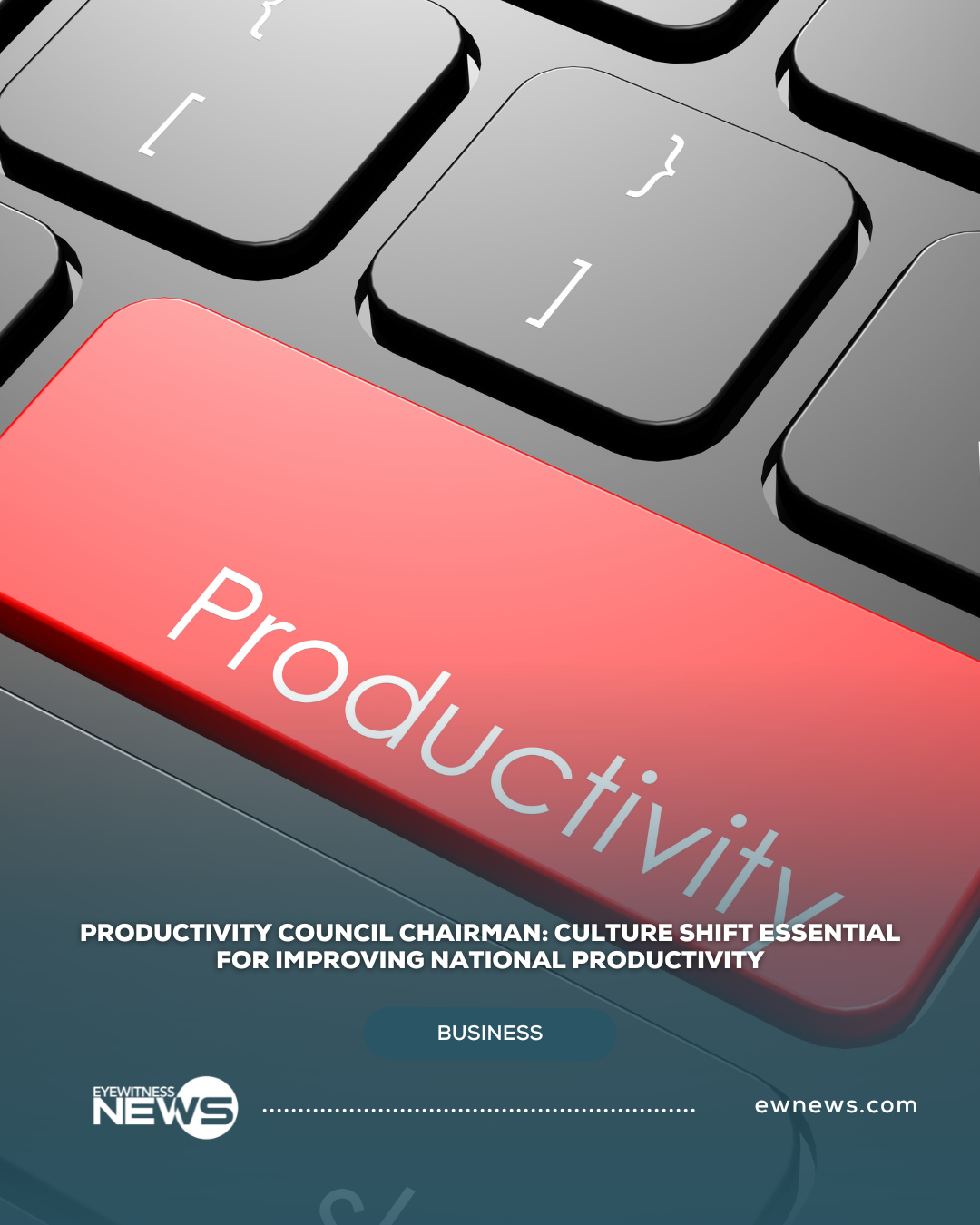NASSAU, BAHAMAS- The National Productivity Taskforce’s chairman says changing the country’s ingrained productivity culture is central to improving efficiency across public and private sectors, noting that it’s not merely a system issue but a “culture issue.”
Edison Sumner who addressed The Bahamas Institute of Chartered Accountants (BICA) Accountant’s Week seminar on Tuesday noted that the newly established Bahamas National Productivity Task Force is focusing on transforming both workplace culture and national systems to drive efficiency, innovation, and competitiveness across the country.
“There are a lot of issues we’re having with our productivity, our productivity culture,” Sumner said. “It isn’t necessarily just only considered a system issue. It’s a cultural issue that’s so ingrained in the way we operate that it’s going to take some real effort to break us out of an old culture to push us into a new culture, where we’re now looking to advance ourselves in our collective improvements and how we conduct business in this country.”
Sumner highlighted the task force’s collaboration with international organizations like the International Labour Organization and its Decent Work Country Program, aimed at redefining productivity evaluation in The Bahamas. “We are now beginning to identify where some of our touch points are, identify where we have some challenges with our levels of productivity in the country, but also looking at areas that we can improve on aspects of our economy and other areas,” she said.
The task force was formally established by the government and seated in September 2025. “The whole idea of developing this task force and this productivity infrastructure in the country came out of a work that was done over a period of time, initiated with the National Tripartite Council, which is a collaboration between the government, the employers, represented by the Chamber of Commerce,” Sumner explained.
The task force serves as a precursor to the Bahamas Productivity, Innovation and Competitiveness Council, which is expected to be fully operational by June 2026. “The work that we are doing now from the task force perspective is to lay the groundwork for the council, which is being established and will be named hopefully sometime by June of next year,” Sumner said. “So when they do get named and the council is established, they would already have a framework that they would be able to work from so they are not going to be starting from scratch.”
Members of the task force include Sumner as chair, with Vincent Vanderpool Wallace, a former Minister of Tourism, serving as deputy. Labor representatives include Jewel Fountain and Darrin Woods, employer representatives Dr. Leo Rolle and Peter Goudie of The Bahamas Chamber of Commerce and Employers Confederation, Kevin Basden, BTVI vice-president, and Deputy Director of Labour, Petrenda Russell-Brice.
The task force is charged with constructing a comprehensive framework and organizational design for the new council, assessing productivity landscapes, and drafting legislation to formally establish the council as a statutory entity. “I’m very pleased that we are well underway of getting that done. In fact, our first draft of the legislation has already been completed, submitted to the government for their initial review, and we are going to be launching the public consultation on the legislation side of this within the next few weeks,” Sumner said.
The task force also emphasizes collaboration across sectors, including labor, academia, civil society, and religious organizations. “We want to be doing this across the country, having some public forum, town halls, meeting with associations like BICA, and those who may want to have some direct personal engagement with us, then we want to encourage that as well,” he said, noting a social media campaign is planned to engage the broader public.
The work aligns with international standards, including the ILO Decent Work Country Program, and focuses on innovation, competitiveness, and creativity. “This is very comprehensive. It is very foundational, but it is also very fundamental for what we see as being the new paradigm in the country as it relates to this issue of productivity and skills development,” Sumner said.
Both public and private sectors are targeted. Sumner noted, “We have found, even in our work being done to this point, that there are many private companies who are having challenges with their productivity in their firms. We need certain expertise to help us get across certain thresholds. We look to engage with experts in various fields, whether it’s with human resources, whether it has to do with the accounting profession, the legal profession, any other profession that can help us identify where the challenges are in our businesses so that collectively we are able to improve on our productive outputs.”
The National Productivity Task Force’s roadmap runs from September 2025 to June 2026 and includes stakeholder engagement, research and legislative drafting, strategic planning, and public consultations. “We want information that can be tested, and we want to challenge you as well to test us to be sure that we are operating at the highest level of efficiency,” Sumner said.


















